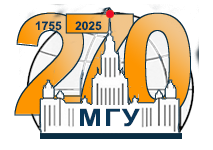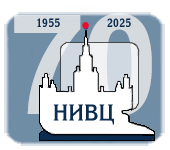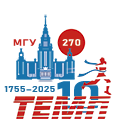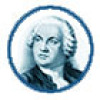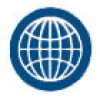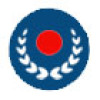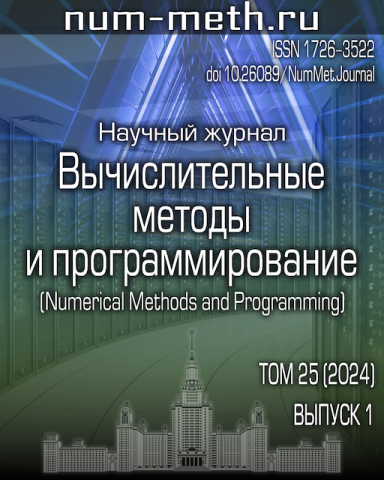Computing Center of the Moscow State University was founded in 1955 on the basis of the Computing laboratory of the Faculty of Mechanics and Mathematics. This has been the first Computing Center affiliated to an educational institution and one of the first of its kind in the USSR. The purpose of the Center was to educate highly qualified experts in computing science, both theoretical and applied.
The founder of the Center and its first Director was Prof. Ivan Semyonovich Berezin, whose influence on the directions and style of research in the Center could be felt over many years. The activities of the Center are based on the following basic elements:- highly qualified staff;
- modern computing facilities;
- leading-edge research;
- undergraduate and postgraduate teaching;
- implementation of modern computing technologies.
The Center has soon acquired the status of a leading national computing research institution. The first application to be developed and implemented were to meteorology, space research with satellites and manned space flights, aerodynamics, electrodynamics, structure analysis, mathematical economics, ets. There were significant achievements in the theoretical numerical analysis and programming. A number of staff were awarded with state orders and medals, Lomonosov Prize of the Moscow University, State Prize of the USSR and Government Prizes of the USSR.
The Center has always been active in advancing and implementation of modern computing technologies in the forms of consulting, allocation of computing time and direct involvement in research projects. The latter activity has resulted in the largest national library of numerical analysis software.
The implementation of modern computing applications in Moscow University is one of the first priorities for the center. The scale of the University, with 30000 undergraduate students and 20000 staff, imposes special requirements on its management. Computing Center proposed first computerized information systems for the Administration as early as in the 1970's. The software packages "Students" and "Admission" were developed and implemented very quickly, and they have been in the core of the University management system since that time, support and further development of the University information systems remain an important part of the Center's activities.
The Center have always been running modern national computing hardware. The first Soviet mass-production computer "Strela" (Arrow) was installed at the Center in December 1956. Many cutting-edge ideas of modern computing were implemented in that early computer. In modern terms it had dedicated processors for fast execution of short codes and admitted vectorized codes. A new computer M-20 was installed at the center in 1961, and BESM-4 in 1966. In 1981 the Center was running four BESM-6's, two ES-1022's, one Minsk-32's, two Mir-2 and "Setun", the first in the world computer fully based on semiconductors, which had been designed in the Center itself (and based on the triple arithmetics).
The expertise of the Computing Center staff in programming, numerical methods, mathematical modelling, etc., has attracted most of large-scale computing facilities of the University. In order to facilitate the access of the users, a University-wide computing network has been proposed as early as in the mid-1970's. Computing Center was naturally the keystone of this project.
Computing Center has diverse collaborations with many departments of Moscow University. The contacts have always been maintained with the laboratory of Computational Mathematics, chaired by the Academicion A.N. Tikhonov. Andrei Nikolaevich Tikhonov had been the Head of Research in the Center for almost a quater of century. This was the period of initial development of Computing Science in Moscow University. The involvement of the Center into undergraduate teaching was at its maximum during this period. The staff of the Center were teaching compulsory and specialized courses, running practicals and maintaining terminal classes. Most of the teaching at newly formed Faculty of Computational Mathematics and Cybernetics during its first years was the responsibility of the Center staff. Many former staff of the Center are now members of that Faculty.
The position of the Center in the structure of the University has been changed several times. In 1955-72 it was an autonomous part of the Department of Computational Mathematics in the Faculty of Mechanics and Mathematics. In 1972-82 it was an Institute, named Research Computing Center (RCC) in the framework of the Faculty of Computational Mathematics and Cybernetics. Since 1982 the RCC has become one of the five major research institutes of Moscow University; its director reports to the University Rector.
After Prof. I.S. Berezin directors of the Computing Center were Academicion V.V. Voevodin, Prof. E.A. Grebenikov and Dr. V.M. Repin. The present Director is Prof. Alexander Vladimirovich Tikhonravov, DSci.
RCC history
News
"Ломоносовские чтения", 26 марта 2026 г.10 February 2026 15:26Б.В. Доброву присвоено звание «Заслуженный научный сотрудник Московского университета»09 February 2026 17:09С.М. Есиной присвоено звание «Заслуженный работник Московского университета»09 February 2026 17:00А.А. Герасимова отмечена премией Правительства Москвы24 January 2026 17:55Заседание Ученого совета НИВЦ МГУ, 15 января 2026 г.30 December 2025 15:11RCC journal
Contacts
119991, Russian Federation, Moscow, GSP-1, Leninskie Gory, 1 , p. 4, RCC MSU
+7 495 939-5424,
Details
Recently added
Суперкомпьютерные дни в России 202617 February 2026Ломоносовские чтения17 February 2026"Ломоносовские чтения", 26 марта 2026 г.10 February 2026
Content of the RCC MSU website is licensed under:
